Understanding why Rabbit Biting occurs and how to guide them toward better behavior gently can make all the difference in creating a peaceful bond. Biting is often a rabbit’s way of communicating, whether out of fear, frustration, or affection. Recognizing these signals is crucial for any rabbit owner, as it leads to a better understanding of their pet’s needs and emotions. Without this knowledge, what starts as a harmless nibble can quickly escalate, creating unnecessary stress for the rabbit and the owner.
This article will explore practical tips to help prevent your rabbit from biting and guide them toward more positive behavior patterns. From identifying potential stressors to implementing gentle retraining methods, you’ll gain insights into fostering a calm, safe environment for your furry friend. With these techniques, you’ll be well on transforming tension into a tranquil, Zen-like zone where you and your rabbit can truly thrive.
Rabbit Biting: Preventing and Retraining – Effective Strategies for a Bite-Free Bond
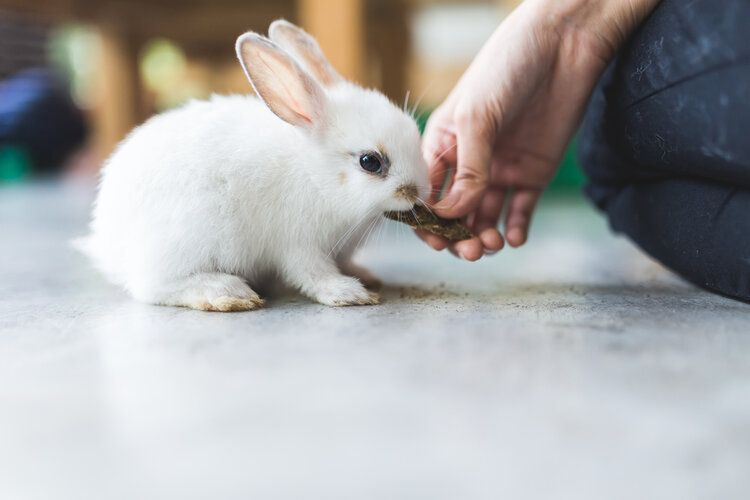
Rabbits make great pets, but sometimes they can bite. This behavior is often a sign of fear or stress. Training a rabbit not to bite involves understanding their body language and creating a safe environment. When a rabbit bites, it’s important to stay calm. Loud noises or sudden movements can make things worse. You can stop a rabbit’s biting habit by figuring out what triggers the biting. Once you know the cause, you can work on fixing it.
If your rabbit bites you, cleaning the wound immediately is essential. Rabbit bites, though often minor, can introduce bacteria that may lead to infections if left untreated. Use warm water and mild soap to wash the area, and consider applying an antiseptic to prevent infection further. See medical advice if the bite appears deep or shows signs of redness and swelling. Remember, with patience and a gentle approach, you can help your furry friend feel more comfortable and gradually reduce biting tendencies, fostering a safer, more trusting relationship.
Key Takeaways
-
Understanding why rabbits bite—often due to fear, stress, or asserting territory—can help prevent biting incidents and promote a calm environment.
-
Encouraging positive interaction and providing plenty of toys and hiding spots can reduce stress and prevent boredom-related biting.
-
Rewarding calm, gentle behavior with treats and praise helps rabbits associate good behavior with positive outcomes.
-
Sometimes, biting may signal underlying health issues; regular vet visits and monitoring for discomfort can prevent pain-induced biting.
-
Retraining a rabbit to avoid biting takes time and consistency, but it leads to a stronger, bite-free bond.
Understanding Rabbit Bites
Rabbit bites can happen for various reasons. Knowing why rabbits bite and what triggers this behavior can help you prevent it.
Common Causes of Biting Behavior
Rabbits may bite due to fear, stress, or pain. They might nip when feeling threatened or cornered. Some rabbits bite to show dominance or mark their territory. Rabbit Biting can also be a sign of underlying health issues. If your rabbit starts biting suddenly, it might feel pain or discomfort. Lack of socialization can lead to biting. Rabbits not used to handling may nip out of fear. Sometimes, rabbits accidentally bite during grooming or when taking treats from your hand.
Identifying Biting Triggers
Watch your rabbit’s body language to spot potential biting triggers. Flattened ears, a tense body, or growling often precede a bite. Sudden movements or loud noises can startle rabbits, leading to defensive biting. Be gentle and calm when handling your rabbit. Changes in routine or environment may cause stress, increasing the risk of biting.
Keep your rabbit’s space consistent and introduce changes slowly. Some rabbits may bite during mating season due to hormonal changes. Spaying or neutering can help reduce this behavior. Pay attention to situations where your rabbit tends to bite. This can help you avoid or modify these scenarios to prevent future bites.
Preventing Biting Incidents
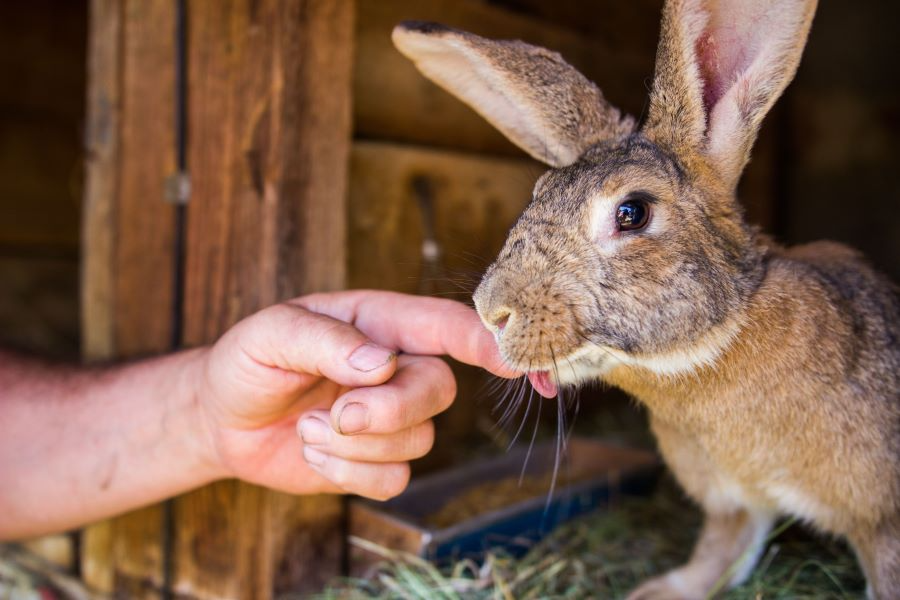
Stopping your rabbit from biting before it happens is key. Two main ways to do this are helping your rabbit get used to people and ensuring they have plenty to do.
Socialization Techniques
Start socializing your rabbit early. Spend time near their cage so they get used to you. Talk softly and offer treats to build trust. Once your rabbit seems calm, try gentle petting. Start with short sessions and slowly make them longer. Always let your rabbit come to you.
Teach your rabbit to accept handling with positive rewards. Give treats when they let you touch them. This helps them link people with good things. Be patient. Some rabbits take longer to warm up than others. Never force interaction if your rabbit seems scared or upset.
Environmental Enrichment
A bored rabbit is more likely to bite. Give your pet lots to do in their space. Add cardboard tubes, willow balls, and safe wooden toys for chewing. Make a digging box with shredded paper or hay. This lets your rabbit follow instincts. Change toys often to keep things interesting.
Offer hiding spots like tunnels or boxes. These give your rabbit a safe place to go when stressed. This can stop fear bites. Set up obstacle courses with boxes and tunnels. This gives your rabbit exercise and mental stimulation. A tired rabbit is less likely to bite.
Did You Know?
Rabbits may start biting due to stress, fear, or environmental changes. New sounds or smells can upset them. Pain or illness might also cause sudden biting behavior. Check for any recent changes that could be bothering your rabbit. Look for signs of health issues, too.
Rabbit Biting: Training Strategies
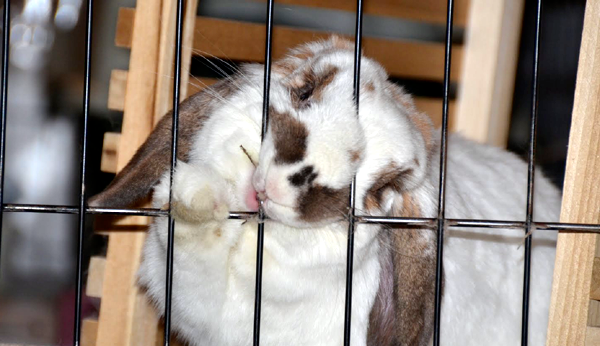
Teaching rabbits not to bite takes time and patience. These methods focus on rewarding good behavior and addressing the root causes of biting.
Principles of Positive Reinforcement
Positive reinforcement is key to training rabbits not to bite. When your rabbit behaves well, give them a small treat or gentle praise. This helps them connect good actions with rewards. Use treats your rabbit loves, like small pieces of fruit or vegetables. Offer the treat right after the desired behavior to make the connection clear.
Never punish your rabbit for biting. This can make them fearful and more likely to bite. Instead, focus on rewarding calm, gentle behavior. Be consistent in your training. All family members should use the same methods and rewards. This helps your rabbit learn faster and prevents confusion.
Step-by-Step Retraining Process
Start by identifying what triggers your rabbit to bite. Common reasons include fear, stress, or feeling threatened. Avoid these triggers during training. Slowly expose your rabbit to situations that used to cause biting. For example, if they bite when picked up, just place your hand near them without touching them.
Reward your rabbit with treats when they stay calm. Gradually increase contact over time, always rewarding good behavior. If your rabbit tries to bite, say “no” firmly and move your hand away. Don’t yell or punish them. Wait a moment, then try again. Practice these steps daily for short periods. Be patient – fully retrain your rabbit may take weeks or months. Consistency is crucial for success.
Health Considerations and Biting
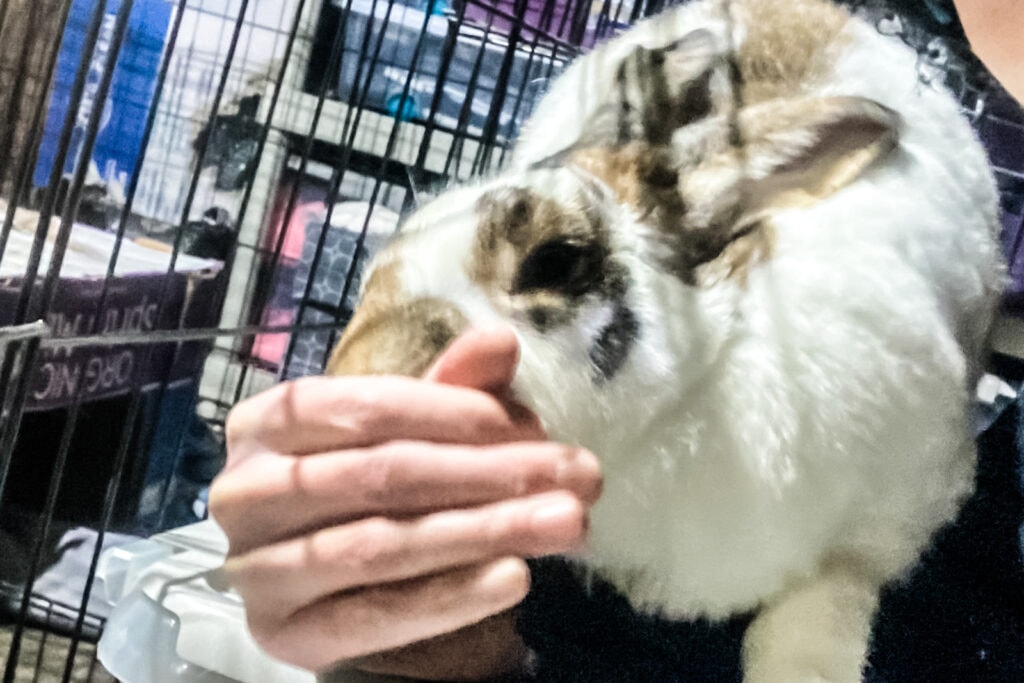
Biting can sometimes signal underlying health problems. Regular check-ups and awareness of pain signs are key to preventing bite-related issues.
Recognizing Pain-Induced Biting
Rabbits may bite when they’re in pain or discomfort. Watch for these signs:
-
Sudden aggression or biting.
-
Reduced activity or appetite.
-
Hunched posture.
-
Teeth grinding.
If your rabbit starts biting out of the blue, it could indicate illness or injury. Common health issues that may cause biting include:
-
Arthritis.
-
Digestive issues.
-
Urinary tract infections.
Always handle your rabbit gently. If you suspect pain, see a vet right away.
Rabbit Medical Check-Ups
Regular vet visits help catch health issues early. This can prevent pain-related biting. Schedule check-ups every 6-12 months. During these visits, your vet will:
-
Examine teeth and nails.
-
Check for lumps or sores.
-
Assess weight and diet.
-
Update vaccinations.
Between visits, keep an eye on your rabbit’s behavior. Sudden changes in biting habits may mean it’s time for an extra vet trip. Remember, a healthy rabbit is less likely to bite. Good diet, exercise, and care all play a part in keeping your bunny bite-free.
Maintaining a Bite-Free Relationship
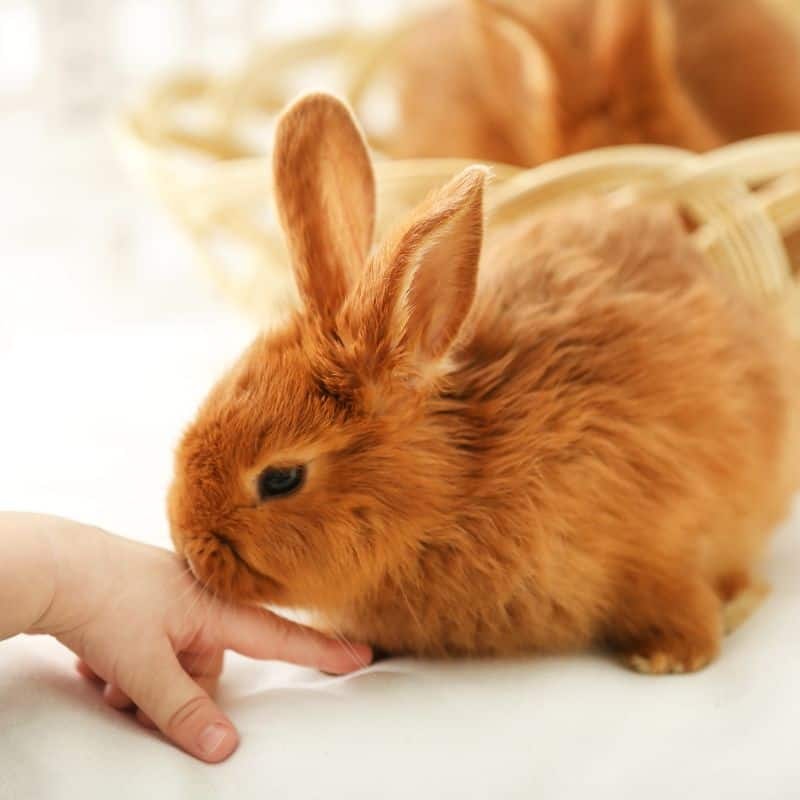
To keep your rabbit from biting, you need to understand why they do it. Rabbits may bite when they feel scared, angry, or want attention. Watch your rabbit’s body language. Flattened ears, a tense body, or grunting sounds can mean they’re upset. Give them space when you see these signs.
Positive Reinforcement and Building Trust
Positive reinforcement is key to changing biting behavior. Reward your rabbit with treats when they’re gentle. This teaches them that being nice leads to good things. Handle your rabbit often, but be gentle. Let them come to you first. This builds trust and makes them less likely to bite.
Additional to Remember
Make sure your rabbit has enough toys and things to chew on. Bored rabbits are more likely to bite. Never hit or yell at your rabbit for biting. This can make them more scared and likely to bite again. If your rabbit tries to bite, say “no” firmly and move your hand away. Then, offer a toy instead.
Spaying or neutering your rabbit can help reduce aggressive behavior. Talk to your vet about this option. Remember, training takes time. Be patient and consistent. You can have a happy, bite-free relationship with your furry friend with care and effort.
Here’s an additional video about biting.
By: Pets Life
Building a Peaceful Bond: Creating a Bite-Free Relationship with Your Rabbit
Creating a peaceful, bite-free bond with your rabbit may take patience, but the rewards are well worth the effort. Understanding why rabbit biting happens and recognizing early warning signs can help you address the issue before it escalates. Every nip and nibble is a form of communication, whether rooted in fear, frustration, or even affection. Observing these behaviors and meeting your rabbit’s needs can strengthen your relationship and foster a calm environment.
Preventing rabbit biting often involves a mix of gentle retraining, socialization, and providing enriching activities. Simple changes, such as adding toys or creating hiding spots, allow your rabbit to exercise their instincts and reduce stress. Likewise, training with positive reinforcement and building routines around safety and trust help your rabbit feel more secure and less prone to bite. Understanding what might trigger your rabbit’s behavior can make a significant difference.
A bite-free, harmonious relationship with your rabbit is possible, and the time invested will lead to a happier and healthier pet. With patience, consistency, and a tailored approach, you’ll transform any biting tendencies into a bond based on trust and mutual understanding. You and your rabbit can truly thrive in this peaceful, Zen-like zone.
Frequently Asked Questions
Rabbit biting can be puzzling and concerning for pet owners. These questions address common issues and provide practical solutions to help you and your rabbit.
What Should I Do if a Rabbit Bite Causes Bleeding?
Immediately take action if a rabbit bite breaks the skin and causes bleeding. Clean the wound with soap and water. This helps remove dirt and bacteria. Apply pressure with a clean cloth to stop the bleeding. Use an antiseptic afterward to clean the wound further.
Can Being Bitten by a Rabbit Pose Any Health Risks?
Rabbit bites can lead to infections if not treated properly. While rare, rabbits can carry bacteria that may cause illness in humans. Clean any bite thoroughly and watch for signs of infection like redness, swelling, or fever. See a doctor if you notice these symptoms or have concerns.
How Can I Teach My Rabbit to Stop Biting Softly?
Make a high-pitched “eep” sound when your rabbit bites to stop soft biting. This mimics how rabbits communicate pain to each other. Gently push your hand toward the rabbit’s mouth when they bite. This unexpected action often makes them stop. Be consistent with these responses.
What Are Effective Methods to Prevent Rabbits From Biting Clothes?
Distract your rabbit with toys when they start to bite clothes. Offer chew toys as alternatives to redirect their biting behavior. Wear clothes that are less appealing to bite, like smoother fabrics. Avoid dangly or loose items that might tempt your rabbit.
What Strategies Can Be Used to Retrain a Rabbit That Bites Everything?
Provide plenty of safe chew toys to satisfy your rabbit’s urge to bite. Rotate toys to keep them interesting. Use positive reinforcement. Reward your rabbit when they chew on appropriate items instead of biting things they shouldn’t. Ensure your rabbit gets enough exercise and mental stimulation. Bored rabbits are more likely to develop problem behaviors like excessive biting.
Connect with Us on Social Media and Spread the Bunny Joy!
Are you passionate about bunnies? We are, too, at The Rabbit Hop! Become part of our online community and enjoy:
Bunny Fun: Enjoy charming videos, discover interesting facts, and get tips for keeping your bunny happy!
Product Recommendations: Find the highest-rated items ideal for your furry friend.
Bunny Network: Engage with fellow bunny lovers who share your enthusiasm.
Follow us on:



